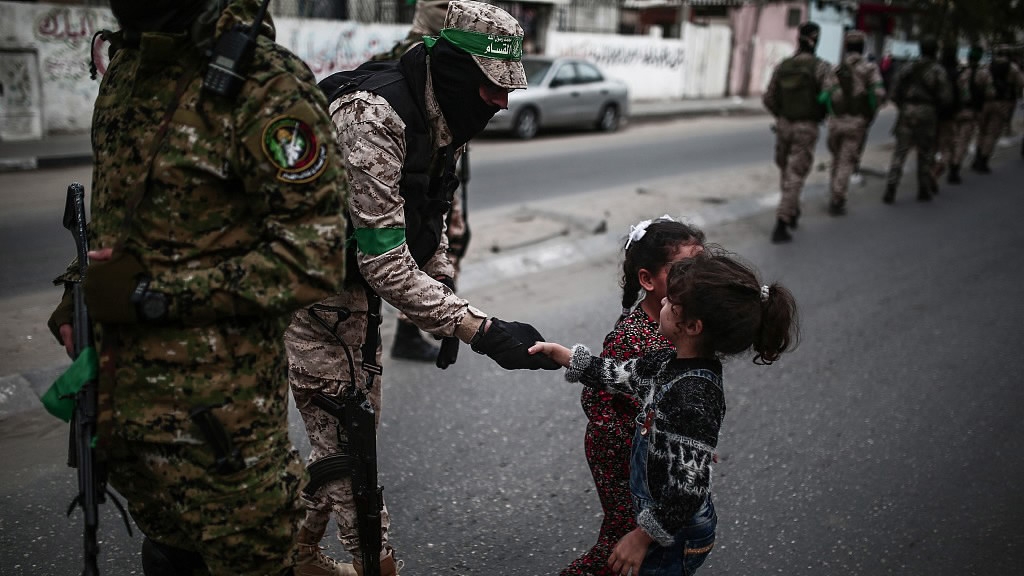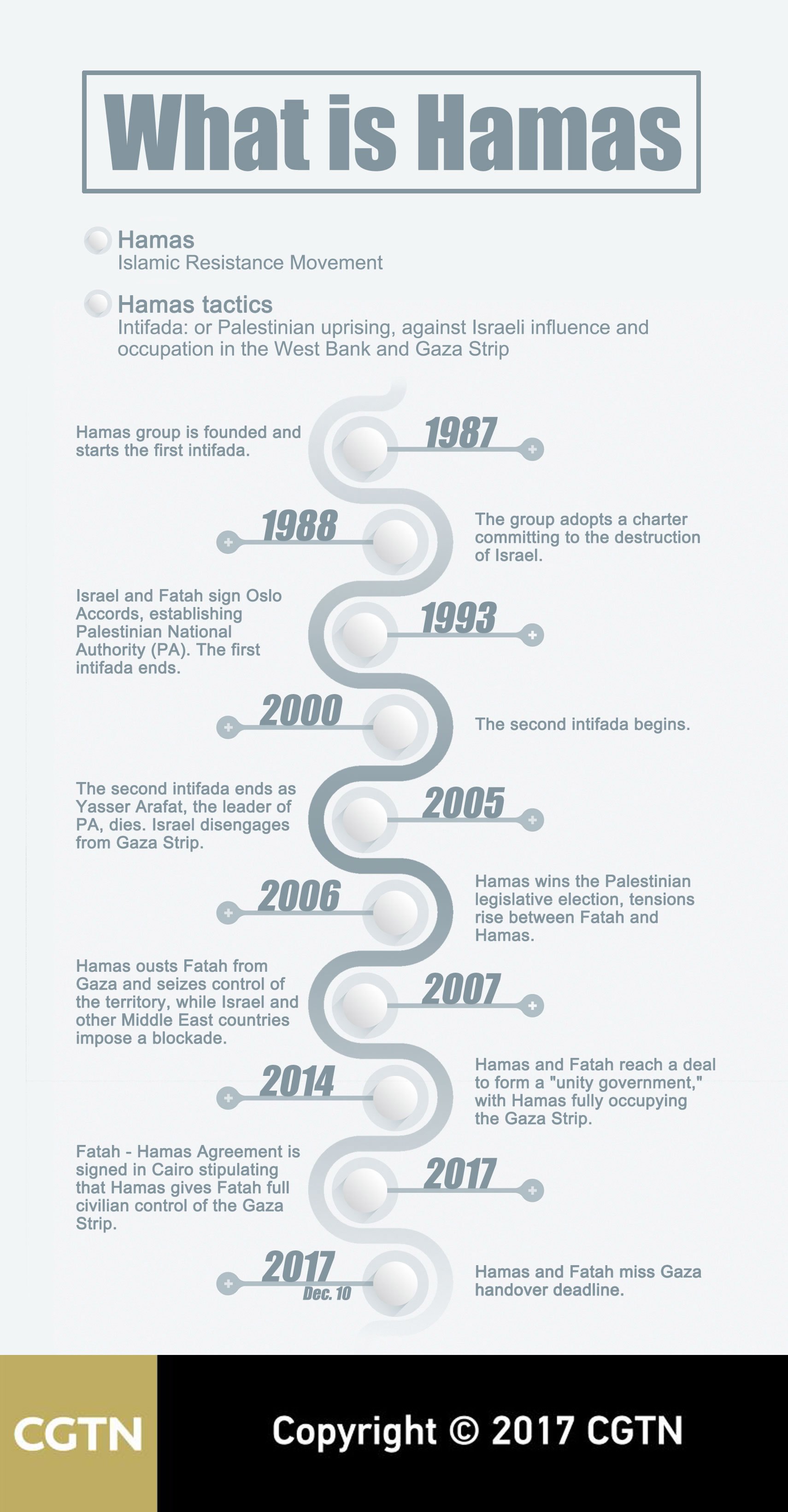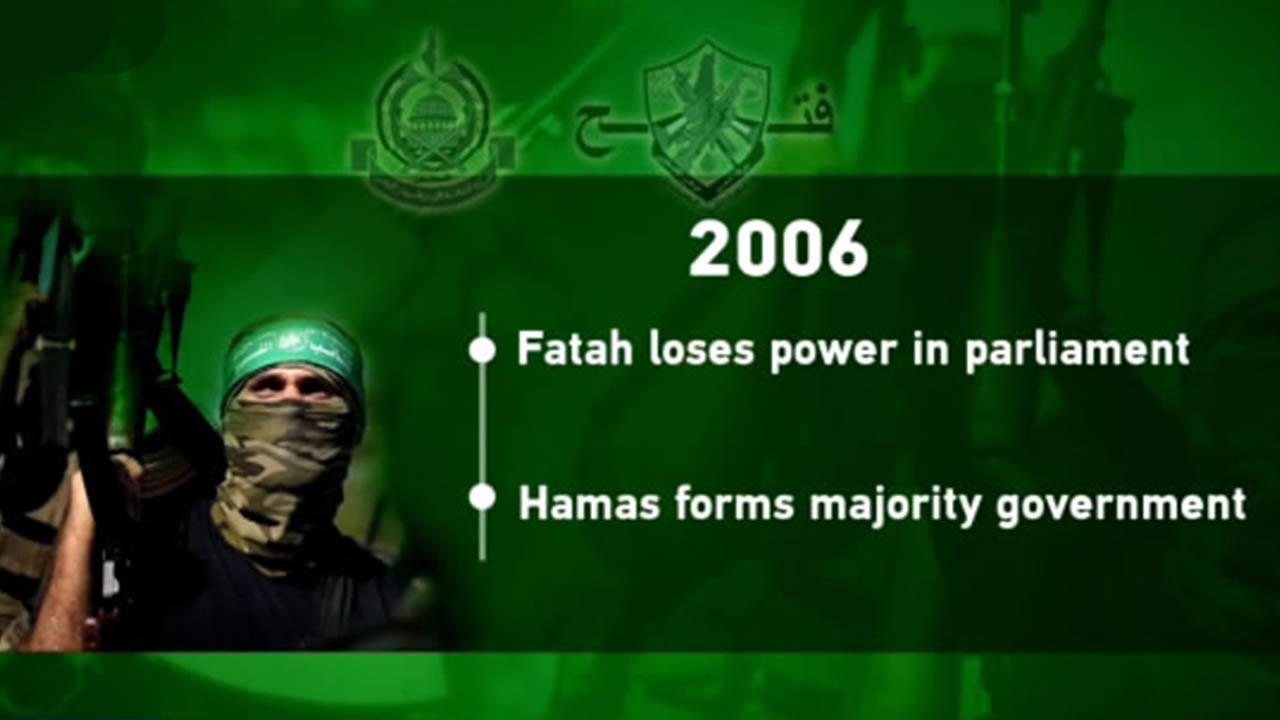Amid simmering tensions in the Middle East after US President Donald Trump’s recognition of Jerusalem as the capital of Israel, Hamas is celebrating the 30th anniversary of its foundation on Thursday. But as the anniversary is marked, multi-faceted crises lie ahead for this Palestinian Islamist political organization and militant group.
Hamas on Wednesday stated that on the occasion of the anniversary it was preparing the "place and the tools" to lead its people "to liberation," warning that the cost will be high. Within a week since Trump’s controversial call on December 6, four Palestinians have died in the Gaza Strip: Two were killed during clashes with Israeli forces and the other two in Israeli air strikes.
Meanwhile, according to Defense Ministry figures, Israel's missile defense system has successfully neutralized 89 percent of the threat posed by rockets fired towards its territories. Hamas has fired 15 rockets towards Israel in a week without causing damage or injury.
Hamas also said it "chose the path of reconciliation and the elimination of all forms of division consciously and insistently, and will remain united behind the gun of liberation." However, Hamas and Fatah missed an already delayed major deadline on December 10 in their reconciliation bid to transfer power in the Gaza Strip.
A third Intifada?
Hamas leader Ismail Haniya has said the US decision to recognize Jerusalem as the capital of Israel is a "war declaration against Palestinians", and called for a new
"intifada", or uprising.
On December 9, the 30th anniversary of the start of the first intifada (1987) was marked.
As the buds of a new wave of violence emerge, is a third intifada on the cards?
Journalist Anshel Pfeffer believes another intifada is unlikely, for three reasons.
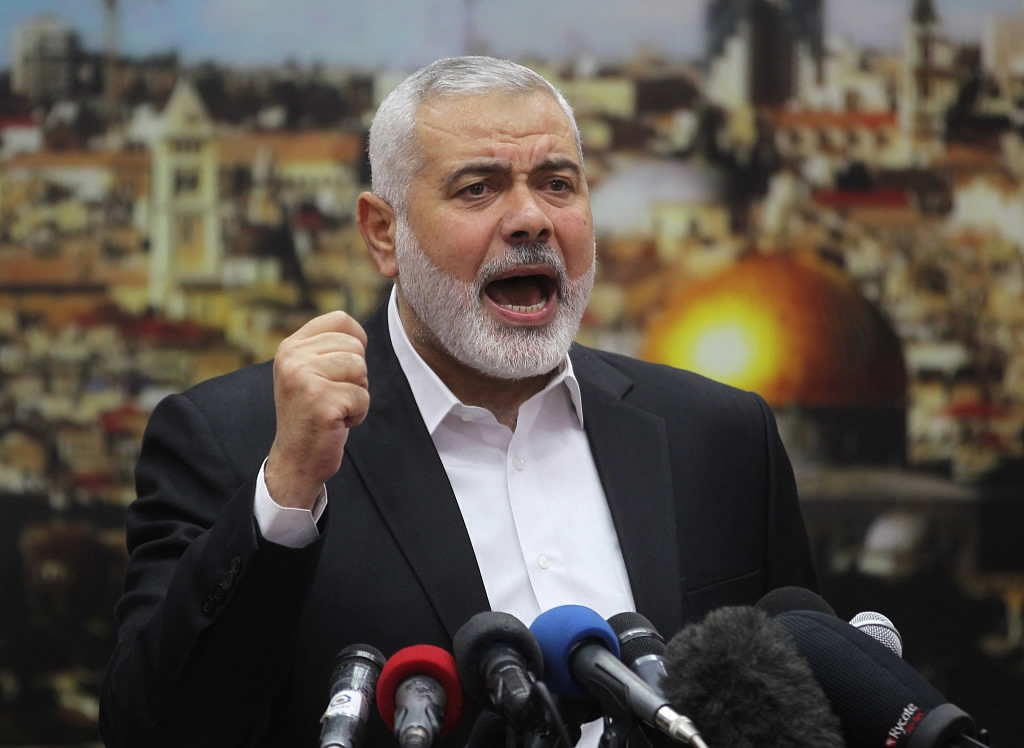
Hamas leader Ismail Haniya gestures as he delivers a speech over US President Donald Trump's decision to recognize Jerusalem as the capital of Israel, in Gaza City, December 7, 2017. /VCG Photo
Hamas leader Ismail Haniya gestures as he delivers a speech over US President Donald Trump's decision to recognize Jerusalem as the capital of Israel, in Gaza City, December 7, 2017. /VCG Photo
First, the joint interests of the three occupied Palestinian communities – the West Bank, Gaza Strip and East Jerusalem – do not lie in confronting Israel at this stage.
Second, the Palestinian National Authority (PA) in the West Bank and Hamas are loath to back a new round of all-out violence as they feel there is too much to lose from the chaos.
Third, war-weariness is high among Palestinians after two intifadas in which thousands died, as well as four conflicts between Hamas and Fatah that live long in the collective memory.
Professor Meir Litvak, an Israeli specialist on Hamas and director of the Alliance Center for Iranian Studies at Tel Aviv University, agreed that Hamas’s third intifada call is not likely to be heeded.
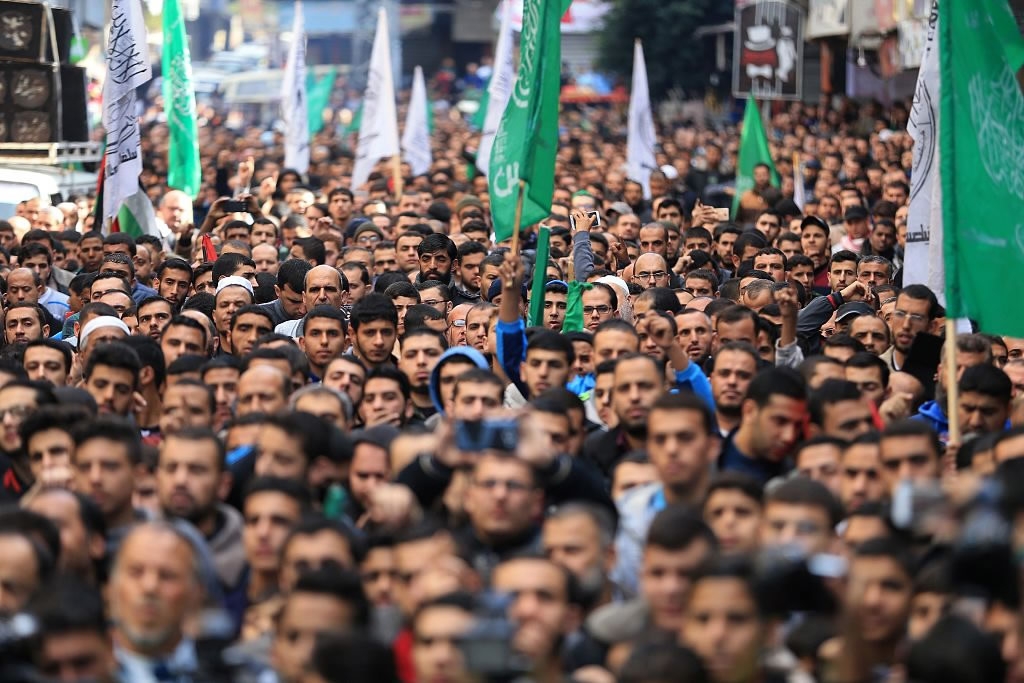
Palestinians take part in a Hamas rally in the Gaza Strip's Jabalia refugee camp, December 8, 2017. /VCG Photo
Palestinians take part in a Hamas rally in the Gaza Strip's Jabalia refugee camp, December 8, 2017. /VCG Photo
He noted Hamas has called for a new intifada several times over the past few years but nothing has materialized.
Hamas is under economic pressure and understands a new war would be very bad for Gaza, so is seeking some reconciliation with the PA, Litvak added.
Litvak also argued that the more radical Salafist movement wants to fight Israel, so Hamas has to make this "intifada" call for political reasons.
Fatah-Hamas: Reconciling the irreconcilable?
Reconciliation talks between Hamas and Fatah have broken down repeatedly as sharp disagreements remain between the factions, particularly over the fate of public employees in Gaza and security control of the enclave.
Hamas stands for Harakat al-Muqawamah al-Islamiyyah, which translates to Islamic Resistance Movement, while Fatah is the reverse acronym of Harakat al-Tahrir al-Filistinya, which translates to Palestinian Liberation Movement.
Although the two sides are both seeking Palestinian self-determination, their goals differ. Hamas recently accepted the formation of a Palestinian state along 1967 borders; however, it does not recognize the Israeli statehood. Fatah wants peace talks with Israel so as to implement a two-state solution.
The deputy head of Hamas’s political bureau in Gaza, Khalil Al-Hayya, said ahead of the reconciliation deadline that the "weapons of the resistance" and payment for public servants it hired to run Gaza are red lines that cannot be crossed.
However, the PA announced that only the government can have supremacy over the security forces, which means if Fatah takes over Gaza, Hamas's militias have to be disarmed or be integrated into the PA's security forces.
Gong Zheng, an assistant researcher of the Institute of Middle East Studies at China Institute of Contemporary International Relations, believes Hamas has no intention at present to abandon its weapons.
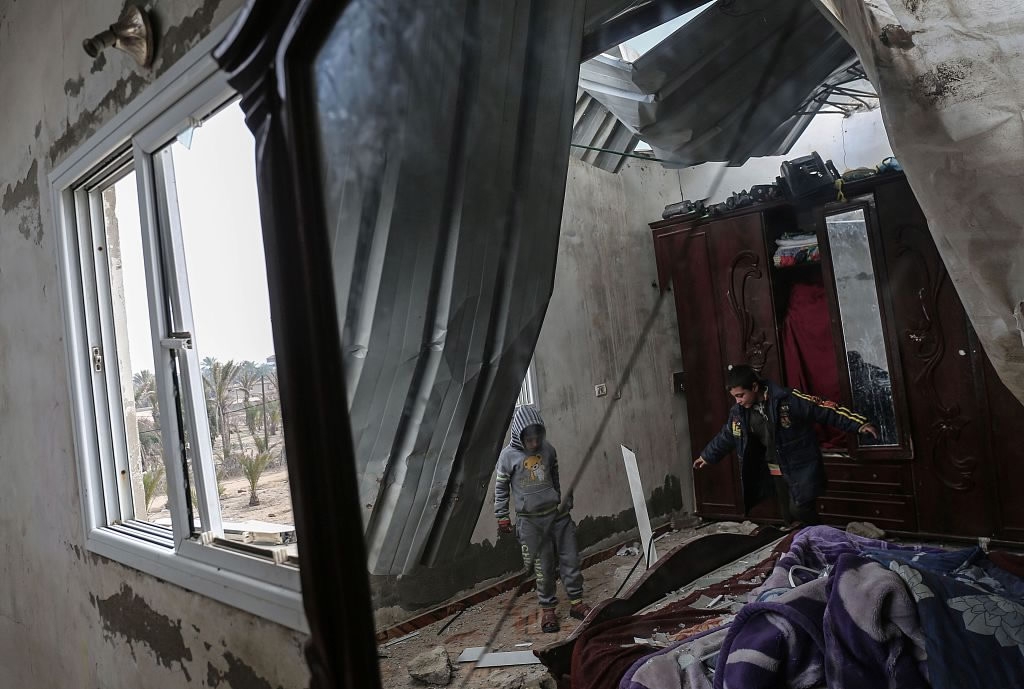
Palestinian children check their house that was damaged in an Israeli airs trike on a nearby Hamas base, in Khan Yunis town in the southern Gaza Strip, December 13, 2017. /VCG Photo
Palestinian children check their house that was damaged in an Israeli airs trike on a nearby Hamas base, in Khan Yunis town in the southern Gaza Strip, December 13, 2017. /VCG Photo
Another major sticking point is resolving payments for the nearly 40,000 public servants that Hamas hired in government and security institutions in the Gaza Strip after the Fatah-led PA asked its employees not to go to work there, except in the education and health sectors, but continued to pay their salaries for 11 years.
Al-Hayya stressed these employees were "not a faction that belongs to Hamas."
However, reconciliation remains a challenging possibility.
"We are still at the beginning of a process, and I do not know whether this process of reconciliation can be declared dead," Ido Zelkovitz, an expert on relations between Fatah and Hamas from the University of Haifa and the Yezreel Valley College said, noting that both sides find compromise difficult.
Zelkovitz believes Egyptians will continue to play an active role in pushing for a compromise.
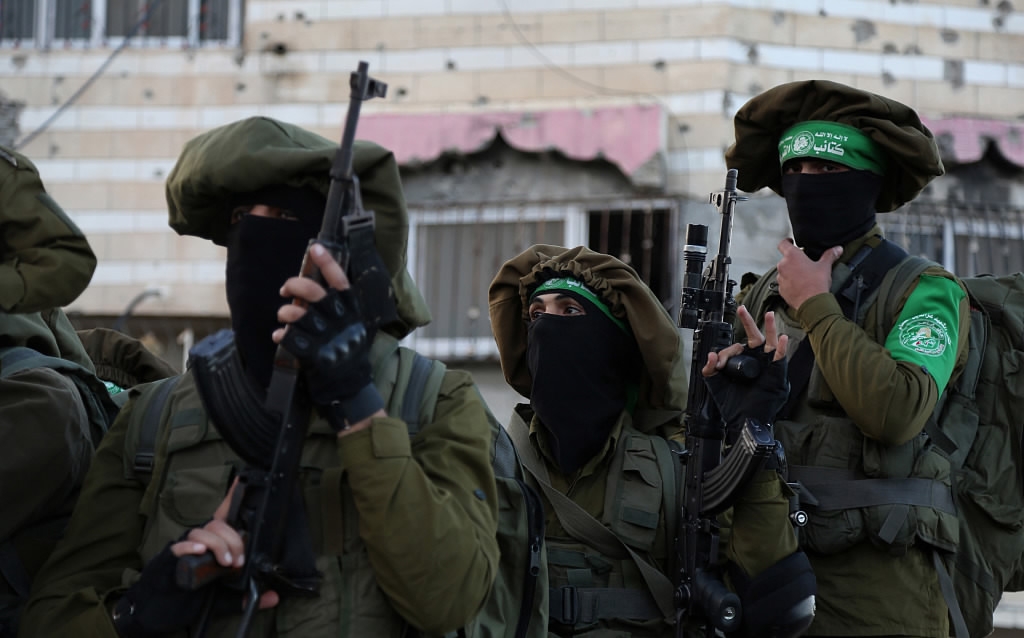
Palestinian Hamas militants take part in a protest against US President Donald Trump's decision to recognize Jerusalem as the capital of Israel, in the northern Gaza Strip, December 7, 2017. /VCG Photo
Palestinian Hamas militants take part in a protest against US President Donald Trump's decision to recognize Jerusalem as the capital of Israel, in the northern Gaza Strip, December 7, 2017. /VCG Photo
"Egypt wants quiet and stability in Gaza and to prevent a humanitarian crisis there. It also wants to sever the ties between Hamas and militant Salafist organizations in the Sinai Peninsula, ties that feed Hamas's military wing. I do not see the Egyptians giving up in light of their own interests in this process,” he added.
The head of the Heinrich Böll Foundation in Ramallah, Bettina Marx, added that Hamas is under pressure as its own population wants reconciliation.
She noted that those living in Gaza want to have freedom of movement again. At the moment, even sick people find getting permission to leave Gaza for treatment difficult.
"The people want a future for their children. Unemployment is above 60 percent, the poverty rate over 80 percent. Hamas's popularity is also suffering in the face of facts like these. Hamas will have to shift, and I see that happening already," she added.
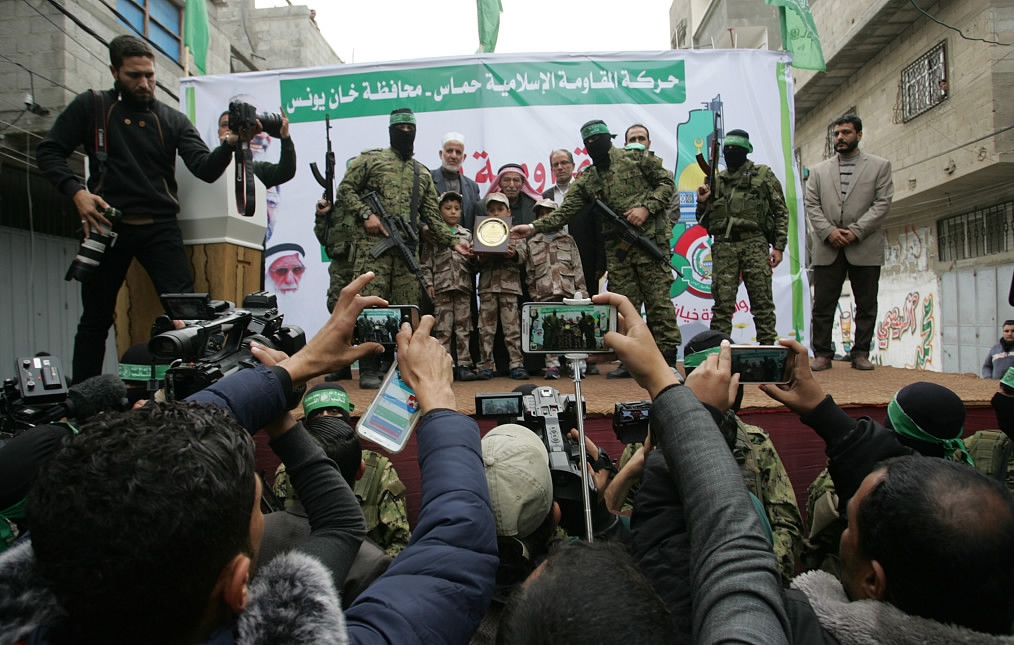
Palestinians participate during the military parade of the Izz el-Deen al-Qassam Brigades, the armed wing of Hamas movement, ahead of the 30th anniversary of Hamas's founding, in Khan Younis in the southern Gaza Strip, December 5, 2017. /VCG Photo
Palestinians participate during the military parade of the Izz el-Deen al-Qassam Brigades, the armed wing of Hamas movement, ahead of the 30th anniversary of Hamas's founding, in Khan Younis in the southern Gaza Strip, December 5, 2017. /VCG Photo
Given its current conditions, Hamas will have to reinvent itself if it wants to remain relevant, concluded Israeli columnist Ben Caspit.

